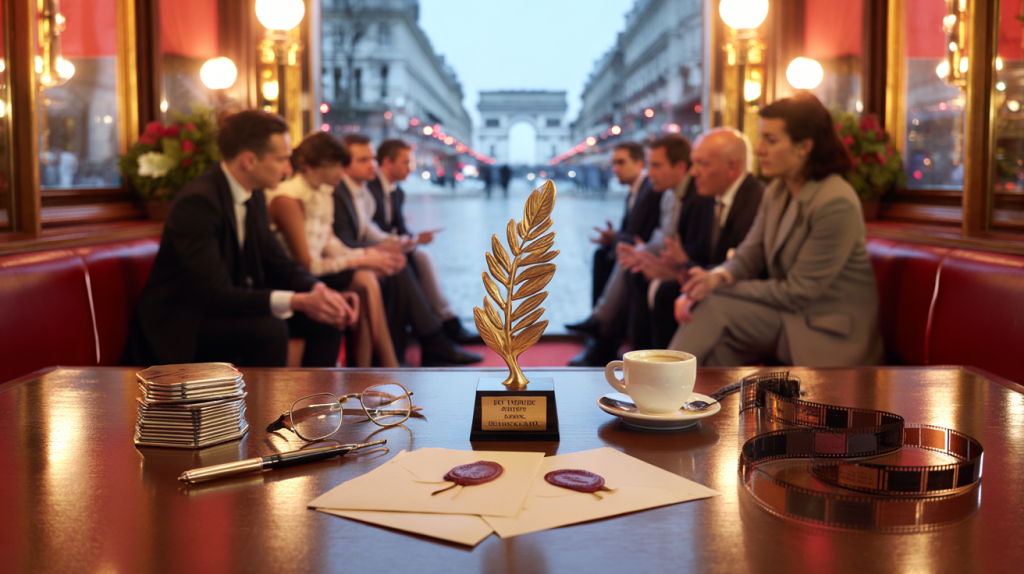Prix Louis Delluc 2025: what to expect, when, and why it matters
Clicking in for the essentials. The Prix Louis Delluc 2025 will crown the standout French film of the year and the most promising first feature, with the verdict traditionally revealed in December in Paris at the storied restaurant Fouquet’s. The name circulates early in the season and the result often sets the tone for the last stretch of awards buzz in France.
Created in 1937 and named after filmmaker and critic Louis Delluc, born in 1890 and gone in 1924, the prize has long been described as the “Goncourt of cinema” in France. A jury of critics and cultural editors meets, debates, then votes, and the winners usually feel the ripple instantly, in theaters and in conversations.
A quick primer: how the Louis Delluc Prize works in 2025
The framework stays clear. Two trophies are awarded, Best Film and Best First Film, and they focus on French productions released during the year. This double lens has helped spotlight both established auteurs and new voices, with a balance that audiences appreciate.
The jury is composed of film critics and journalists, brought together under the long running presidency of Gilles Jacob, known for leading the Cannes Film Festival in the past. Meetings happen in Paris, the conversation is sharp, and the final vote comes late in the year to capture the full range of releases.
The calendar follows a steady rhythm. Shortlists emerge in early winter and the announcement generally lands in mid December at Fouquet’s on the Champs Elysées. That timing places the Delluc just before year end lists, creating a real momentum for the laureates in the final days of the year.
Signals to watch: the jury’s taste, the Cannes link, the release window
One pattern stands out. Many recent winners premiered at major festivals, often Cannes, then traveled through the French release calendar with strong word of mouth. This mix of early prestige and lasting conversation aligns with the jury’s focus on artistic ambition and cultural resonance.
The release window plays a role. Films that sustained attention into autumn have tended to stay in the jury’s field of view, especially when the theatrical run sparked debate or critical consensus. That does not exclude spring or summer titles, it simply shows how memory and recency interact.
Another practical point matters for readers and moviegoers. The prize covers French cinema in a broad sense, from auteur dramas to inventive hybrids, as long as the artistic identity is clear. That has kept the award relevant and present in the public eye, year after year, despite evolving tastes.
The 2025 race: early conversations, criteria, and how to follow
Expect the 2025 talk to lean on a few criteria. A distinctive point of view, formal clarity, and the ability to open a window on contemporary life in France usually help. First features often catch up through raw energy and a signature voice, even with smaller budgets.
Festival circuits will shape the narrative. Titles launched at Cannes or Venice often arrive with a critical framework already written, then the French theatrical release either confirms it or reorients the conversation. Press screenings in Paris, closer to December, can still move the needle.
Practical tip for tracking the outcome, without noise. Follow the official announcement from the jury at Fouquet’s, watch the calendars of leading French cultural outlets, and compare the Delluc choices with the César shortlist later in winter. The cross reading reveals how the award echoes through the season.
The context still grounds the story. Since its creation in 1937, the Delluc has stayed selective with only two categories, which makes the choice legible to audiences and industry alike. The name of Louis Delluc helps too, an early pioneer of film criticism, whose legacy gives the prize a precise identity.
And yes, small thing, it definitly rewards films that spark conversation beyond a single screening. That is where the prize leaves a trace, in theaters and in the way the year is remembered.
